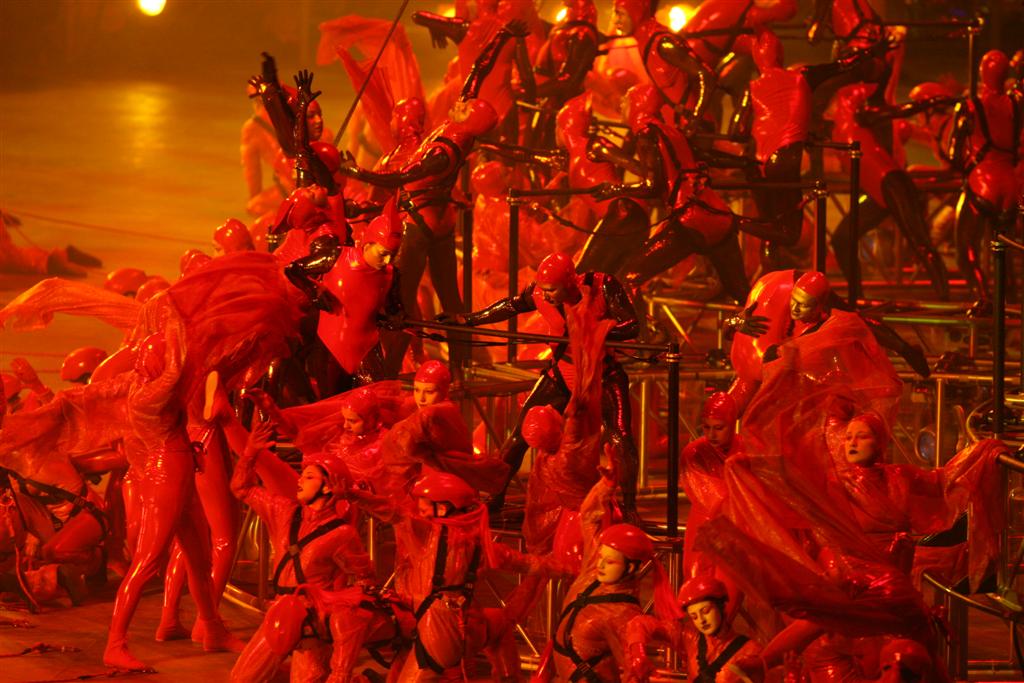Vancouver Journal #2: The World’s Biggest Party
Sunday, January 24, 2010
Last week I received my NBC credentials in the mail. More than airplane tickets, the hotel room, the food at the commissary, the salary or per diem, these two laminated plastic cards are the primary perk for being a part of the NBC Olympic team. With these two cards I will be able to enter virtually any event at the Olympics and get down to the “mixed zone” where only athletes and press are allowed. Sadly opening ceremonies are the one even where even these credentials won’t work. .

But being there is different. The Olympics are the single biggest party in the world. For 17 days, a few million people, all in a good mood, all with a love of sport, walk around in a perpetual state of delight – wide eyes taking in the spectacle of a city transformed – many with family or friends, or the friend of a friend taking part in the events. I would expect that downtown Vancouver will be much like Torino was four years ago – throngs of people in hats and scarves pouring in and out of cafes and restaurants, bars and shops, camera crews and temporary broadcast pods, and the occasional brightly colored warmup suit of an athlete strolling casually along with everyone else.
 Most people are nervous to speak to the athletes, but for the most part, these fears are unwarranted. 99.99% of these athletes have toiled in anonymity for years, if not decades. To be recognized by strangers for their investment with few interested questions and a request for a snapshot can make an athlete’s day – and indeed in a half hour stroll you will likely see a dozen or more of these spontaneous group shots taking place, brightly suited athletes surrounded by a huddle of smiling strangers blocking pedestrian traffic to complete the picture. The atmosphere is even more enchanting in the evening. Even as the temperatures drop, a new level of interpersonal warmth is created.
Most people are nervous to speak to the athletes, but for the most part, these fears are unwarranted. 99.99% of these athletes have toiled in anonymity for years, if not decades. To be recognized by strangers for their investment with few interested questions and a request for a snapshot can make an athlete’s day – and indeed in a half hour stroll you will likely see a dozen or more of these spontaneous group shots taking place, brightly suited athletes surrounded by a huddle of smiling strangers blocking pedestrian traffic to complete the picture. The atmosphere is even more enchanting in the evening. Even as the temperatures drop, a new level of interpersonal warmth is created.
 In Torino, incredibly colorful and complex lighting displays arched over the streets downtown lighting the vapors of breath and laughter in the cold winter air. The question, “where are you from,” usually with an accent is more than a gesture of politeness – it is an invitation to a true conversation, one that often turns into an invitation – to a reception, an event, or to a party. Some may consider the Olympics a frivolous enterprise – these are “games” after all. World hunger isn’t being solved, no mines or nuclear warheads are being deactivated, and despite efforts to become more “green” there is likely a negative net contribution to global warming. That said, consider world ills – world “weaknesses” as it were. Perhaps as a society, as a world culture, we are guilty of much of the same negative bias and focus as we are as teams and individuals. We spend our time and energies on fixing what is wrong rather than celebrating and adding to what is right.
In Torino, incredibly colorful and complex lighting displays arched over the streets downtown lighting the vapors of breath and laughter in the cold winter air. The question, “where are you from,” usually with an accent is more than a gesture of politeness – it is an invitation to a true conversation, one that often turns into an invitation – to a reception, an event, or to a party. Some may consider the Olympics a frivolous enterprise – these are “games” after all. World hunger isn’t being solved, no mines or nuclear warheads are being deactivated, and despite efforts to become more “green” there is likely a negative net contribution to global warming. That said, consider world ills – world “weaknesses” as it were. Perhaps as a society, as a world culture, we are guilty of much of the same negative bias and focus as we are as teams and individuals. We spend our time and energies on fixing what is wrong rather than celebrating and adding to what is right. 
The Olympics are ultimately a celebration of strengths – a study in what is right vs. a focus on what is wrong. The world needs its cancer seminars, and violence prevention workshops, but in the end perhaps what it needs most is a positive focus for its energies. Perhaps the world needs more of these games, a bigger focus on what is right in the world. For this we thank the Greeks of nearly 3000 years ago who fed the world this amazing enterprise where the celebration of excellence triumphs again and again.
Preview of Vancouver #3: Meet the athletes – short track and long track team members




